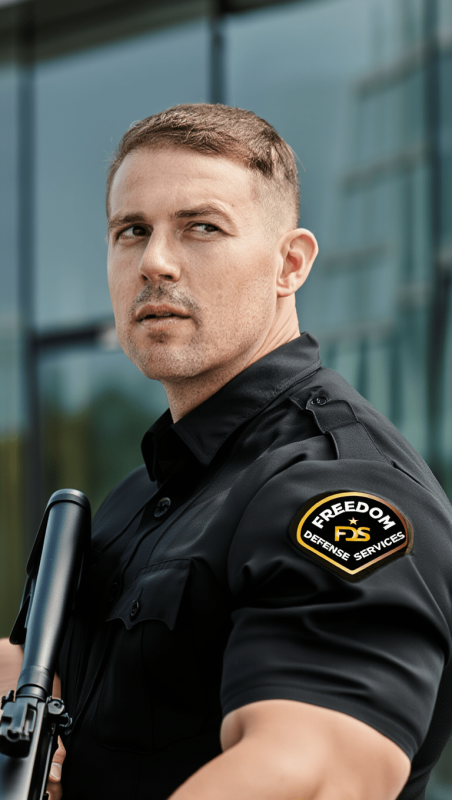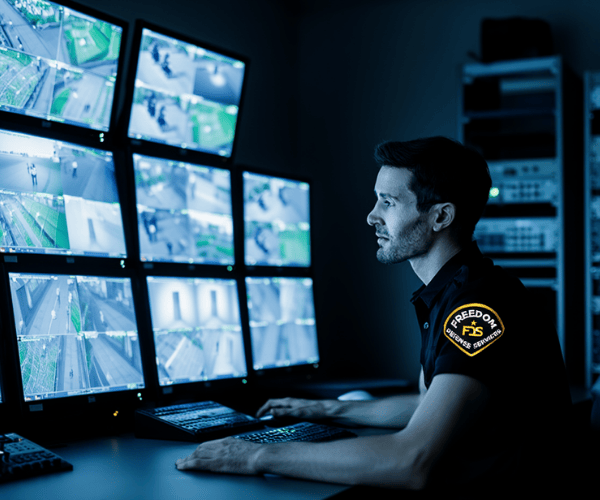What Commercial And Industrial Security Guards Actually Do
In an office building, security officers watch lobbies, elevators, and visitors. On a warehouse or industrial site, they also deal with truck gates, yard checks, high bay storage, fuel tanks, and occasional heavy equipment moving past them. The job is broader and more physical, and the risks are different.
Commercial and industrial security guards may be assigned to:
- Gatehouses that control truck and employee access
- Reception areas that screen visitors and vendors
- Yard and perimeter patrols that protect trailers, containers, and parked vehicles
- Interior patrols through docks, loading areas, storage aisles, stairwells, and mechanical rooms
- Camera and access control stations that monitor card readers and critical doors
Their work sits at the intersection of loss prevention, safety, and access control. They help reduce theft, prevent trespassing, support accident response, and give managers a clear picture of what happens around docks, doors, and high risk areas during every shift.





